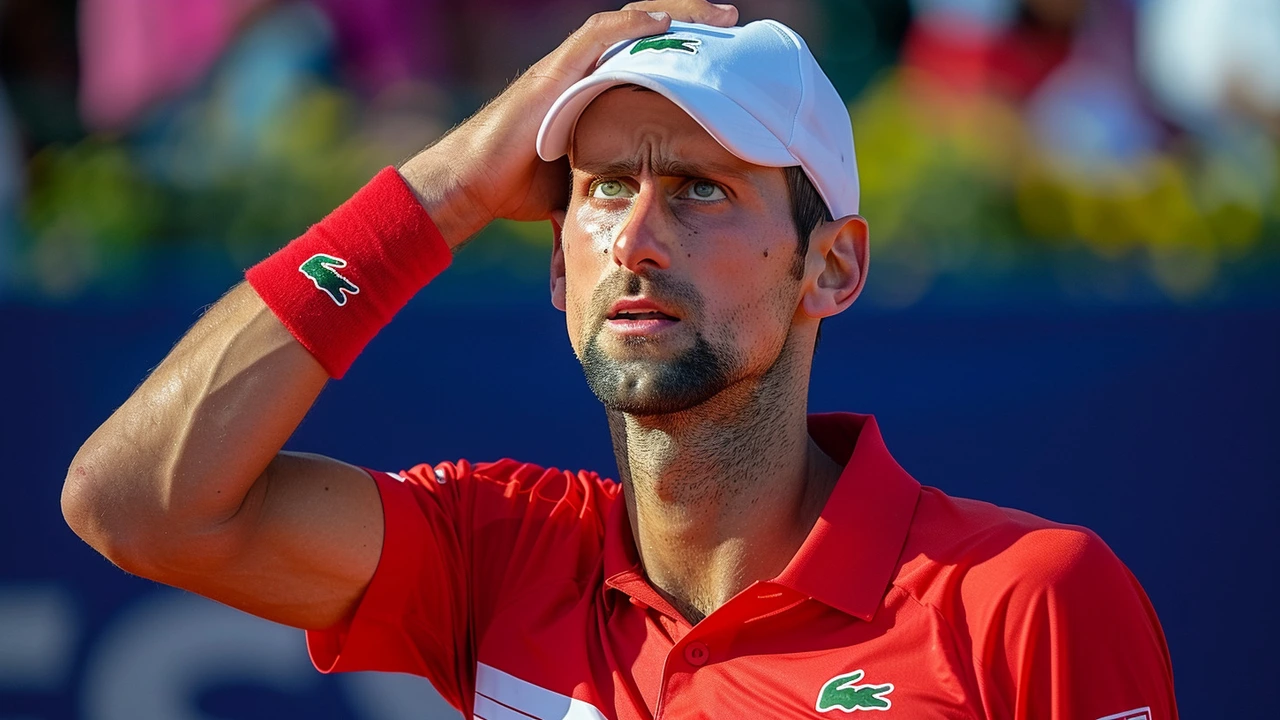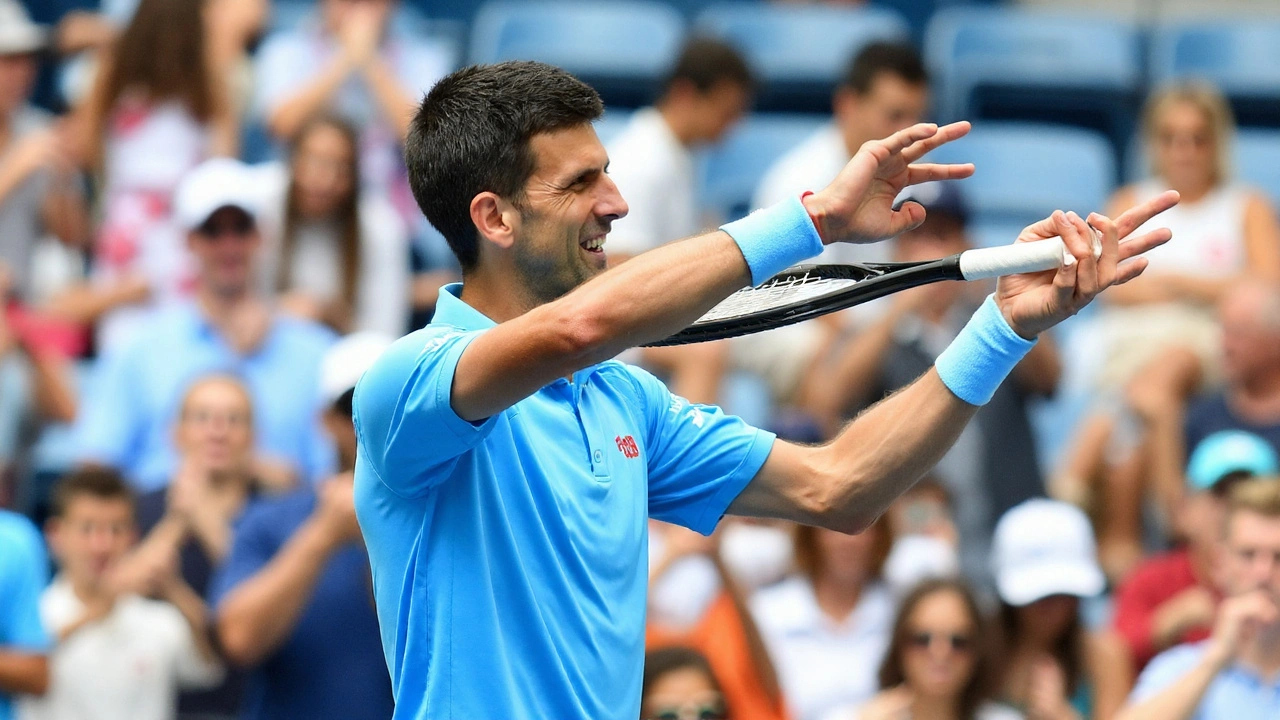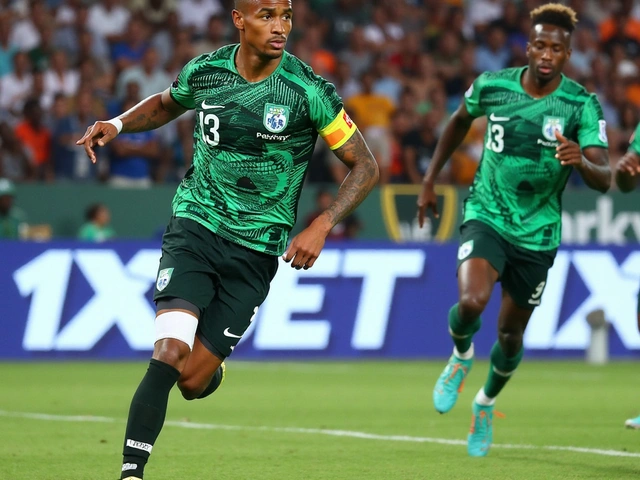World-renowned tennis player Novak Djokovic recently faced a disconcerting set of challenges during the Italian Open, one of the most prestigious tournaments in the tennis calendar. Djokovic, who has regularly dominated the courts with his unmatchable skills and resilience, experienced one of his career's most alarming episodes. This incident has raised concerns about his physical condition moving forward, as well as the safety measures present at high-profile sports events.
The Serbian champion, accustomed to being a frontrunner in the tournament, suffered an unexpected and rare defeat to Chilean player Alejandro Tabilo in the round of 16. This match not only highlighted a surprising dip in Djokovic's form but also came with a physical ordeal. During a session where Djokovic was engaging with fans and signing autographs, he was accidentally struck on the head by a metal water bottle. The impact was severe enough to cause symptoms such as nausea, dizziness, and minor bleeding, unsettling the star athlete.
Djokovic described feeling as if he was not himself on the court. According to him, 'It felt like someone else had taken over. There was no rhythm, no tempo, and no balance in my shots. It was truly disconcerting.' Following the incident, despite managing to sleep and trying to recover, Djokovic continued to feel unwell, ultimately leading to his decision to seek medical attention to assess any underlying issues that might have been triggered by the incident.
The impact of this incident stretches beyond just a physical examination. It puts a spotlight on the fierce competitive nature and physical demands of professional tennis. Athletes like Djokovic are constantly under immense pressure to perform at their best. In Djokovic's case, his physical health became a significant concern, a scenario that elite athletes sometimes face. Medical professionals will likely conduct a comprehensive evaluation including neurological assessments to rule out any serious injury such as a concussion, which can occur even with seemingly minor impacts to the head.
Health and Safety Measures in Tennis
The incident has also sparked discussions about health and safety measures at tennis events. While unprecedented, the mishap with the water bottle serves as a stark reminder of the potential hazards present even in non-contact sports. Event organizers often have stringent safety protocols, but this event underscores the need to continuously review and improve these measures to protect both players and fans.
The Psychological Impact on Performance
Beyond physical health, such incidents can have a profound psychological impact on athletes. Feeling 'off' or not in control can deeply affect a player's confidence and game, which is crucial in a sport that requires immense mental focus and resilience. Recovery from such incidents isn't just about physical healing but also about regaining psychological stability and trust in one's ability on the court.
Psychologists and sports analysts will be observing Djokovic's recovery and return, as his experience could provide valuable insights into the psychological recuperation processes of elite athletes following such unusual disturbances during a major tournament.
Conclusion
Novak Djokovic's recent ordeal at the Italian Open brings to light numerous facets of being a high-level athlete — the physical vulnerabilities, the psychological battles, and the ever-present need for top-notch safety measures in sports arenas. As Djokovic awaits the results of his medical tests, the sporting world watches closely, hopeful for not only a swift and complete recovery but also for improvements in how these sports tournaments are conducted in terms of athlete safety. His journey now serves as a reminder of the unpredictable challenges that come with professional sports and the resilience required to overcome them.








Nancy Ortiz
May 13, 2024 AT 20:23Ah, the glorious symphony of neuro‑vascular trauma colliding with a perfectly calibrated tennis serve-nothing says "peak performance" like a surprise concussion during a fans‑meet autograph session. The sheer elegance of a metal water bottle converting kinetic energy into a mini‑cerebral blow is, of course, a testament to the meticulous safety protocols we all cherish.
Ashish Saroj( A.S )
May 16, 2024 AT 17:50Really? You think this incident is just a minor hiccup??!! It's absurd to downplay the ramifications-yet everyone seems to act like it's nothing more than a splash of water! The narrative that "players bounce back" neglects the underlying neuro‑physiological cascades that could jeopardize an entire season!
But of course, the media will spin it as a mere anecdote, right?
Ayan Kumar
May 19, 2024 AT 15:17Picture this: a titan of the court, suddenly reduced to a wobbling puppet, all because a rogue bottle chose that exact moment to deliver a coup de grâce! Everyone pretends they knew it was coming-no one, however, anticipated the exact clinical fallout. It's a masterpiece of chaos wrapped in a tennis match.
Nitin Jadvav
May 22, 2024 AT 12:43Well, if you’re looking for a lesson in resilience, this is it-though the coach in me wonders why the staff didn’t double‑check the aisle for loose equipment. Maybe next time they’ll hand out helmets with the autographs!
Adrish Sinha
May 25, 2024 AT 10:10Even the best can have off days, and this could be a chance for Novak to come back stronger after some proper rest and care.
Arun kumar Chinnadhurai
May 28, 2024 AT 07:37Let’s remember that proper concussion protocols involve a step‑by‑step assessment: neurological exam, cognitive testing, and a graduated return‑to‑play schedule. Following these guidelines ensures safety for all athletes, and Novak’s team can use this as a model for future events.
Aayush Sarda
May 31, 2024 AT 05:03It is imperative that we, as proud supporters of our national tennis heritage, demand the highest standards of safety at every tournament. The incident, albeit unfortunate, underscores a systemic oversight that must be rectified promptly. Facilities should enforce rigorous equipment checks, and organizers must adopt a zero‑tolerance policy toward preventable hazards. Let us unite in urging the ATP to implement these measures without delay.
Mohit Gupta
June 3, 2024 AT 02:30Wow what a mess sucks the life out of sports fans all over
Varun Dang
June 5, 2024 AT 23:57We all empathize with Novak’s situation; his dedication inspires countless fans worldwide. By embracing a supportive community and adhering to thorough medical guidance, his recovery can serve as a beacon for resilience in the face of adversity.
Stavya Sharma
June 8, 2024 AT 21:23While the incident has garnered widespread sympathy, it also reveals a lapse in operational diligence that cannot be ignored. Event organizers must reevaluate their safety protocols to prevent such avoidable mishaps, ensuring that athletes are not subjected to unnecessary risks.
chaitra makam
June 11, 2024 AT 18:50It’s clear that a simple check could have avoided the bottle accident, and a calm review of procedures will help keep players safe.
Amit Agnihotri
June 14, 2024 AT 16:17One must admit, the lack of oversight is glaring.
Erica Watson-Currie
June 17, 2024 AT 13:43In the grand tapestry of sport, a single disrupted moment can echo beyond the court.
Mark Pelletier
June 20, 2024 AT 11:10When a world‑class athlete like Djokovic suffers an unexpected concussion, the incident becomes more than a headline-it transforms into a meditation on the fragility of the human body amid relentless competition. The water bottle, an innocuous object, turned into a catalyst for a cascade of physiological events that we rarely consider in the glamour of Grand Slam narratives. One might argue that the very design of athlete‑fan interactions invites unintended hazards, a paradox of accessibility and vulnerability. In the realm of sports medicine, such events are reminders that even the most seasoned professionals are not immune to the whims of chance. The neurological assessment that follows will likely explore not only the immediate symptoms but also the latent effects that could manifest weeks later. Cognitive testing will probe memory, attention, and processing speed, providing a window into how the brain recuperates under duress. Meanwhile, the broader community watches, perhaps hoping for a swift return, yet also contemplating the ethical responsibility to prioritize health over spectacle. The psychological toll, often eclipsed by physical concerns, can erode confidence and alter a player’s strategic approach on the court. Cultural narratives valorize perseverance, but they sometimes neglect the necessity of genuine recovery periods. Moreover, the incident underscores the importance of robust safety protocols at venues, where staff must anticipate even the most unlikely scenarios. A simple protocol revision-like securing objects away from player pathways-could avert future mishaps. The tennis world may benefit from a collective introspection, balancing tradition with modern safety science. As fans, we are reminded that athletes are human, subject to the same vulnerabilities as any of us. The conversation should shift from speculation about performance to advocacy for comprehensive care. Ultimately, the goal is to ensure that when the next match begins, the focus remains on skill and strategy, not on preventable injuries. In this way, the sport honors both its competitive spirit and its duty of care.
Cheyenne Walker
June 23, 2024 AT 08:37Adhering to established concussion protocols will facilitate a safe and efficient return to competition for the athlete.
Jo Simpkinson
June 26, 2024 AT 06:03Ah, the elegance of bureaucracy-nothing says “we care” like a stack of forms and a chorus of official statements, all while the crowd waits for the drama of the next serve.
Darrell Kuykendall
June 29, 2024 AT 03:30Take it easy, Novak-you're still a champion!!!